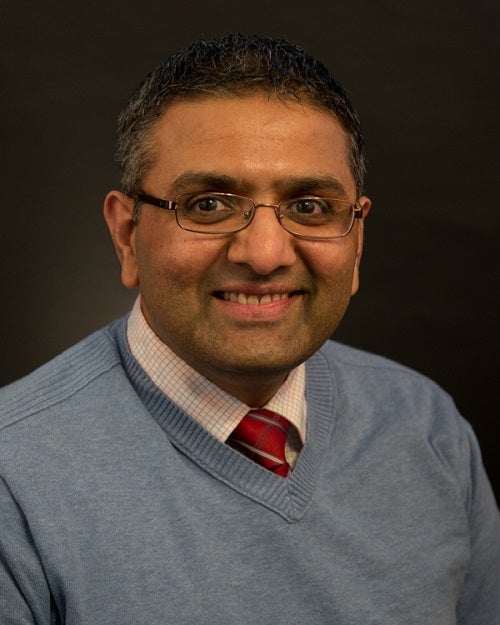Lung Cancer: The Best Cure Is Prevention and Early Detection
October 29, 2020Categories: Bassett News
Tags: Bassett News
 Lung cancer is one of the most common cancers treated at Bassett Healthcare Network.
Lung cancer is one of the most common cancers treated at Bassett Healthcare Network.
Anush Patel, MD, (pictured at right) a medical oncologist and hematologist, has been a member of the 110-employee team at Bassett Cancer Institute for nine years. He treats patients at Cobleskill Regional Hospital one day per week and at Bassett Medical Center four days per week.
Did you know that 30 percent of all cancers are smoking-related and 80 percent of lung cancers are smoking-related? This means that a high percentage of cancer prevention is in our control. If you or someone you love is addicted to smoking, Bassett has a lung cancer screening program and several smoking cessation specialists on staff.
"Smoking contains cancer-causing chemicals including arsenic, benzene, and formaldehyde," explains Dr. Roy Korn, Jr., medical director of Cobleskill Regional Hospital. "There are more than 7,000 chemicals in cigarette smoke."
Nicotine patches and gum, support groups, education, and other treatments are available for patients who want to kick the habit of smoking.
Between 2016 and 2019, Bassett screened 2,200 patients for lung cancer with CT scans and 56 patients tested positive for lung cancer. "Out of 56 patients, 35 patients were in early stages of cancer, stages one and two - this is very treatable," says Dr. Patel.
What Can You Do to Avoid Cancer?
Good habits like a healthy diet, proper exercise, and avoiding excess tobacco or alcohol intake are four ways to prevent cancer.
"Stop putting yourself at high risk of cancer by using tobacco, consuming alcohol and eating unhealthy foods," says Dr. Patel. "Get screened regularly if you are at risk. Get a colonoscopy and take advantage of our lung cancer screening program, if applicable. Women should get a Pap smear and mammogram."
Protecting our immune system also prevents cancer. Drinking excessive amounts of alcohol or smoking can weaken our immune system and lead to DNA damage.
"Damage to our DNA causes cancer," says Dr. Patel. "Alcohol increases our weight and can raise certain hormone levels. Alcohol, smoking, and/or fatty or processed foods can also cause DNA damage."
Bassett Cancer Institute sees approximately 1,500 new patients and oversees 15,000-16,000 patient visits annually. There are many different types and subtypes of cancer, and many require treatment with chemotherapy.
"Chemotherapy has come a long way in the last 10 years," says June Furstman, a registered nurse at Cobleskill Regional Hospital for the past 27 years. Furstman is a certified oncology nurse who works closely with Dr. Patel.
"The field of oncology is changing so fast. The fact that Bassett is a teaching hospital that trains residents to be future doctors means that Bassett stays on the cutting edge of developments in medicine," says Dr. Patel.
"Drugs to treat cancer have changed significantly in the last five to 10 years with chemotherapy, immunotherapy, and targeted therapy. Now we can get special tests on patients' cancer cells to personalize their cancer therapy. Targeted drugs are more effective and usually have fewer side effects than chemotherapy," says Dr. Patel.
Five years ago, a stage four lung cancer diagnosis meant a life expectancy of six to nine months. Now, with personalized therapy and new drug developments, many people are living four to five years and longer.
"We often hear, 'I used to get my treatments in Albany,'" says Furstman. "People are starting to realize that Cobleskill Regional Hospital offers many types of immunotherapies and maintenance chemotherapies. This saves people a lot of travel time when they feel their worst."
The earlier cancer is detected, the better your chances of survival.
